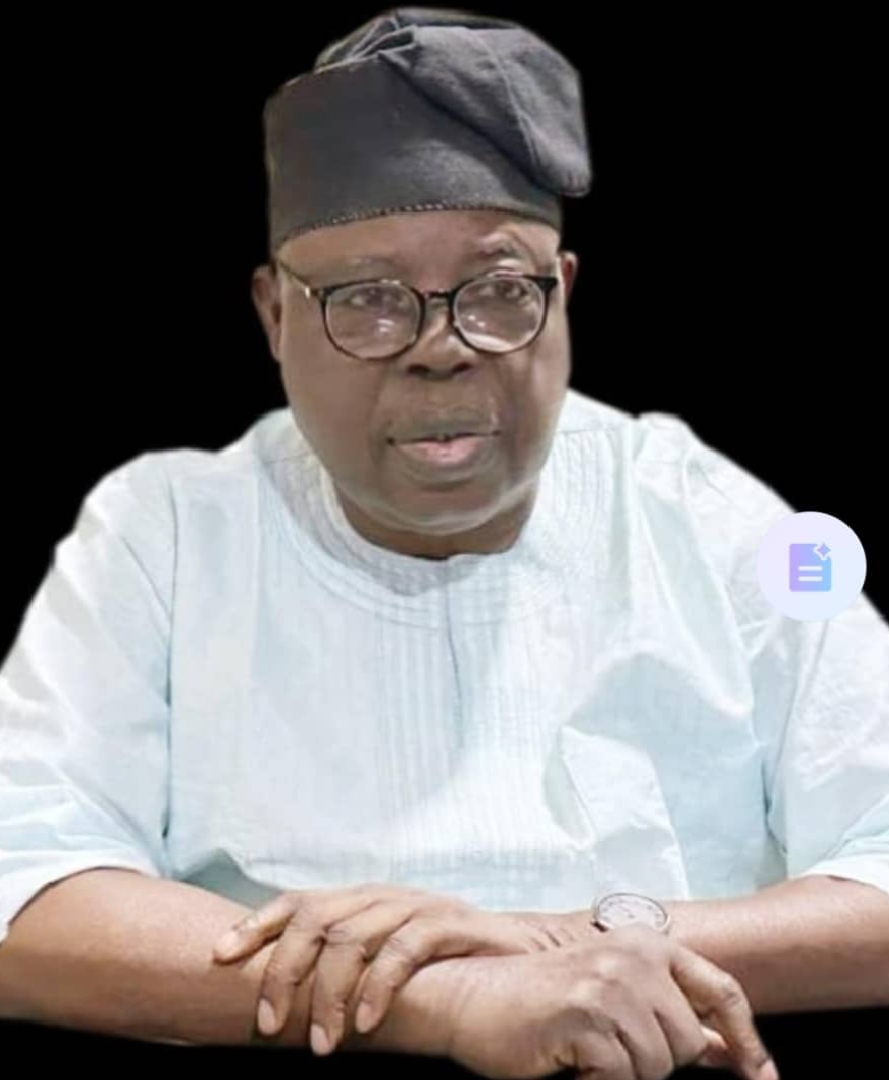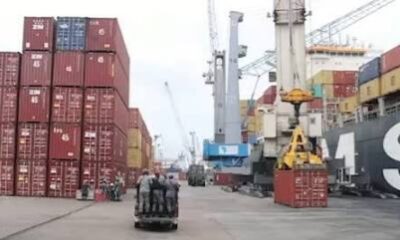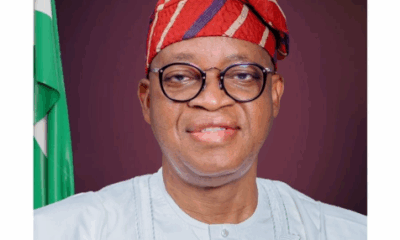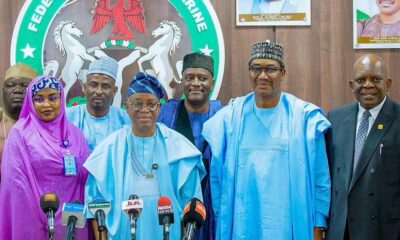Customs Report
‘Port Industry Corruption and Touting Enabled by Regulatory Gaps’ – Prince Shittu

BY EGUONO ODJEGBA
In the bustling corridors of Nigeria’s ports, a quiet storm is brewing, one that threatens to destroy the delicate balance of trade, regulation, and professionalism in the maritime sector unless the authorities urgently reigned in the enabling forces.
At the heart of this crisis lie a controversial 7% port levy, a newly introduced 4% Free on Board (FOB) charge, and a licensing regime that many say is pricing legitimate customs agents out of business.
For decades, customs licensed agents have served as the backbone of Nigeria’s import and export operations. But today, they find themselves squeezed by rising costs, regulatory ambiguity, and a system that increasingly favours unregulated players.
Prince Olayiwola Shittu, a most respected, leading customs broker and former President of the Association of Nigeria Licensed Customs Agents (ANLCA) in an interview pinpointed the challenges and knotty issues with unrivaled passion and great intelectual depth.
The Cost of Legitimacy
Delving into history regarding the ongoing customs license fee controversy, he said: “In 2004, when the last license fee increase happened, it was taken for granted. But now, agents are coughing up ₦4 million annually just to renew their licenses. It’s giving room for moneybags and foreigners to take over the industry.
The broker, who has spent years, navigating Nigeria’s port system, paints a grim picture of how legitimate agents are burdened with office requirements, staff training, and compliance obligations, while unlicensed freight forwarders operate with impunity.
“This is giving room to those with illegal funds and foreigners to take over. Customs licensed agents are employers of labour. We train staff, maintain offices, and meet regulatory expectations. But now, the cost is unbearable.”
He also queried the reluctance of regulators for allegedly failing to properly distilling players and harmonizing operators in other to achieve oversight, efficiency and growth.
“If you’re just a freight forwarder without a customs license, what exactly are you doing in the port, transportation, documentation? You must be regulated.”
A Sector Divided
Forthright, unfazed and tolerant, Prince Shittu did not shy away from constructively addressing the nagging rivalry between the two leading players in the cargo clearance sub sector: the Association of Nigerian Licensed Customs Agents (ANLCA) and the National Association of Government Approved Freight Forwarders (NAGAFF).
Responding to question on the rivalry between the two groups, Prince Shittu unveiled industry indifference and double standards that has helped to deepen the divide.
In a wrap up lamentation, Shittu regarded as the father of Nigeria’s modern customs brokerage practice notes that “While ANLCA members bear the brunt of regulatory fees, others—often without licenses—celebrate the hikes as a competitive advantage.
“Why should you be dancing on the grave of a friend? It means you wish him dead so you can drag everyone to your level”, he quipped with a sad voice.
He revealed that meetings with the Comptroller General of Customs have included representatives from associations that don’t require licenses, a move the broker describes as one of the factors enabling chaos and double standard in the customs trade zone. He argued that the result is a fractured industry where professionalism is diluted and influence is traded like currency.
CRFFN: From Regulator to Revenue Collector
He also did not spare the Council for the Regulation of Freight Forwarding in Nigeria (CRFFN), originally established to professionalize the sector, facing allegations of prioritizing revenue over regulation. “CRFFN has become an organization solely to collect money. They even engaged consultants allegedly collecting 40% of agency fees.”

Expressing sadness on how promises of training and professional development have fallen flat, he argued that customs and not CRFFN should be responsible for educating brokers.
“Customs have a training school. They should be the ones training their agents, like in America, South Korea, and England.”
The broker highlighted the importance of Form C30—a certificate that authorizes licensed agents to process customs documents, noting however the regime of lax enforcement, allowing unlicensed operators to piggyback on legitimate agencies for access to customs systems.
“I have said it while we are discussing now that it is the same government or government operators who are the beneficiary in the long run that are making it not to work, you cannot go into customs area without being on what they call Form C30.
“Form C30 is a certificate with your photograph, signature and the signature of the company that has the license, authorizing them to approach customs for processing their documents. If anybody does not have access to custom for processing documents, will it remain in the port?
“But those other people still find it convenient for example, all you need to do is to pay somebody that has the pass word to do assessment and give your document to the person for a fee. That licensed agency is running a risk. That’s why they call some of them commercial license.
“All the seizures you see in the port today there’s always a license involved. But how many of those people have been prosecuted?” he asked.
On Unity and Reform
Expressing frustration on the calls and necessity for unity between the various groups notably ANLCA and NAGAFF, Shittu argued that while such calls are appreciated, those making the calls merely wish to be politically correct, saying it’s a case of two unlike items.
Despite the challenges, Shittu said discussions are ongoing and that licensed agents are pushing for a clearer regulatory framework, fairer fees, and recognition of their professional status; while unity remains elusive.
“No member of ANLCA wants to hear that we’re subservient to NAGAFF. We spend money to maintain our operational capability. Not so for the other side. Once you get a bill of lading, you show up, distribute money, and carry your cargo.
On a sober reflection, he declares: “We are a country of unserious players and jokers. Everyone knows the truth including the media. But unless we act, the industry will continue to suffer under the weight of confusion, corruption, and unchecked ambition.”
A Bill in Limbo
The conversation shifted to the long-delayed transition of the Nigerian Shippers Council into the official economic regulator of the ports—a reform that has stalled across multiple administrations.
“There’s no real reason for the delay, it started because agencies heads don’t want anyone looking into their backyard. Why fear a regulator that ensures fair pricing and accountability?”
The broker emphasized the importance of affirming the Shippers Council as the economic regulator, capable of protecting importers from overcharges and enforcing discipline among private operators.
“If an importer is overcharged, they should report to the Council. But people are dodging it because they’re making money from the chaos.”
He praised recent efforts by Barr. Pius Akutah, the Executive Secretary of the Shippers Council for leveraging on existing drive to make the regulatory transition possible , but suggested that political power plays have kept the bill buried.
“It’s the same old story—‘I’m more powerful than you.’ That’s why the Council can’t achieve its mandate.”




































